Vaser-Liposuction in Cape Town
Search and Compare the Best Clinics and Doctors at the Lowest Prices for Vaser-Liposuction in Cape Town
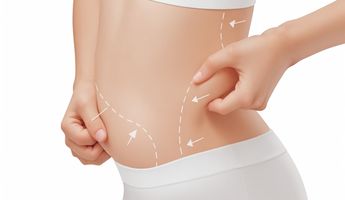
Find the best clinics for Vaser-Liposuction in Cape Town
No pricing info available
Thailand offers the best prices Worldwide
Price: $ 236
From 36 verified reviews
Kim Adams, 30 March 2020
Overall I had a good experience.
Dr Dawid Potgieter, located in Syfred Douglas St, Cape Town, South Africa offers patients Vaser-Liposuction procedures among its total of 90 available procedures, across 1 different specialties. Currently, there's no pricing information for Vaser-Liposuction procedures at Dr Dawid Potgieter, as all prices are available on request only. All procedures and treatments are undertaken by the lead specialist at the Hospital, and they have multiple recognized accreditations, including: HPCSA - Health Professions Council of South AfricaDepartment of Health, Western CapeFCS(SA) - Fellowship of the College of Surgeons of South Africa
- Home
- South Africa
- Cape Town
Compare Before & After Photos of _procedure_photos.phpVaser-Liposuction


Front view


Half-side view
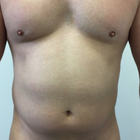
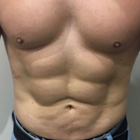
Front view

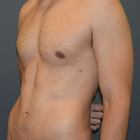
Half-side view
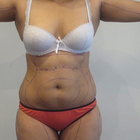

Front view
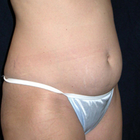
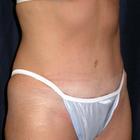
Half-side view
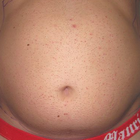
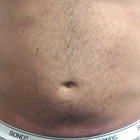
Front view
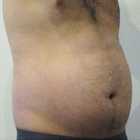
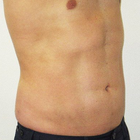
Half-side view
WHY US?
At Medijump, we're making medical easy. You can search, compare, discuss, and book your medical all in one place. We open the door to the best medical providers worldwide, saving you time and energy along the way, and it's all for FREE, no hidden fees, and no price markups guaranteed. So what are you waiting for?

Free

Best Price

Widest Selection

Risk-Free
What you need to know about Vaser-Liposuction in Cape Town

Vaser liposuction, also referred to as Vaser Lipo for short, is a type of cosmetic treatment performed to change the contours and shape of the body by eliminating stubborn fat deposits. Vaser stands for Vibration Amplification of Sound Energy Resonance, which is a specialized ultrasound technology that sends out ultrasonic frequency waves to break down fat cells from desired areas of the patient. Once the fat cells have been broken down, the surgeon can perform the liposuction part of the procedure, which is removing excess fat through a suction process.
Vaser Liposuction has become increasingly popular because the specialized ultrasound technology increases the accuracy of the procedure and minimizes damage to the surrounding tissue, which results in less bruising and pain compared to traditional liposuction. Also, since the fat cells are specifically targeted, the result is much more sculpted and smoother than traditional liposuction. Vaser Liposuction can be performed in many areas of the body, including the abdomen, back, arms, flanks, neck, thighs, calves, ankles, hips, buttocks, and under the chin.
Like other liposuction techniques, it is important to note that Vaser Liposuction is not a weight loss solution. The procedure is intended to contour the body, reduce stubborn excess fat, and reveal muscle tone underneath the fat. You must already be healthy and within your target weight before you consider undergoing this procedure. It
What does a Vaser-Liposuction Procedure Involve?
To begin the procedure, your surgeon injects a saline-anesthetic solution mixture or tumescent solution directly into treatment areas. This solution is used to expand the fat compartment and tightens small blood vessels. It also helps to start the breakdown of the fat cells and protects other tissues. Tiny incisions are then created in the targeted area to insert the Vaser ultrasonic probes. The vibration from the ultrasound will break down the fat. Once the fat is broken down, your surgeon will use a small cannula to remove the fat cells and liquid. Because the fat is broken down with the ultrasound, the fat extraction with the liposuction cannula is easier and less traumatic than in traditional liposuction.
Vaser Liposuction can be carried out under local anesthetic with minimal oral sedation, general anesthetic, or intravenous sedation. If the procedure is performed under local anesthesia, you may feel slight pinching and pressure when the liposuction part is performed.
How Long Should I Stay in Cape Town for a Vaser-Liposuction Procedure?
Vaser Liposuction takes around 2 to 5 hours to complete. After the procedure, you may have to stay in the hospital overnight if general anesthesia is used. However, if local anesthesia is used you should be able to leave the hospital on the same day once the effects of the anesthetic wear off.
Since your surgeon will schedule follow-up appointments to monitor your healing and remove your stitches, you may need to stay in Cape Town for several days following the surgery. The recommended length of stay in the country is about three to seven days.
What's the Recovery Time for Vaser-Liposuction Procedures in Cape Town?
The recovery period of Vaser Liposuction is typically short, but it depends on your general health and treated area. In general, you should be able to return to work and most of your daily activities within two to seven days. You also need to refrain from exercise or other forms of strenuous activities for about 2 weeks. However, if you have gone through a more extensive procedure, you need to prepare for a longer recovery period. The overall recovery time may take up to 24 days following the Vaser Liposuction.
What sort of Aftercare is Required for Vaser-Liposuction Procedures in Cape Town?
Your surgeon will give you specific post-operative instruction. You must follow all the instructions closely to help you heal quickly and smoothly, as well as to avoid any possible complications. It is important that you rest as much as possible during the first few days. You may feel some pain and discomfort, but your surgeon will prescribe pain medication to help manage the discomfort.
It is important that you maintain a healthy lifestyle by following a healthy diet and exercising regularly to keep the results of your Vaser Liposuction. While mild weight fluctuations will go unnoticed, significant weight gain will become noticeable. Therefore, have a well-balanced diet, avoid too many sweets, and stay away from fast food.
What's the Success Rate of Vaser-Liposuction Procedures in Cape Town?
Approximately 90% of women and men who have gone through Vaser Liposuction reported having achieved their target. The results of the procedure may be seen immediately, but the most significant improvement will appear in 6 to 8 weeks following the procedure. It may take about 6 months to achieve the final results.
Again, your new look will only remain if you take care of yourself. The results will not be permanent if you do not stick to an active and healthy lifestyle. The procedure is designed to give you a little boost and to get rid of persistent fat that you cannot remove easily through a healthy diet and exercise.
While risks and side effects of Vaser Liposuction rarely occur, it is best that you are aware of them. The risks and side effects are:
- The ultrasound device may burn your skin and tissues.
- Skin discolorations.
- Skin from the affected area may be wavy, dimpled, or saggy.
- The formation of scar tissue.
- Swelling.
- The remaining fat cells can expand.
- To further minimize the risks, make sure you choose a skilled and experienced surgeon.
Are there Alternatives to Vaser-Liposuction Procedures in Cape Town?
If you do not want to undergo Vaser Liposuction or you are not an ideal candidate for the procedure, you can opt for the nonsurgical alternatives:
- CoolSculpting works by freezing stubborn fat cells in certain areas of the body. The freezing temperature can destroy fat cells permanently. This type of procedure can remove fat cells from certain areas of the body, particularly belly fat, back fat, love handles, arm fat, or a double chin.
- Sculpsure uses a laser beam to heat fat cells until they become irreversibly damaged. This procedure is very quick and requires almost no downtime.
Whilst the information presented here has been accurately sourced and verified by a medical professional for its accuracy, it is still advised to consult with your doctor before pursuing a medical treatment at one of the listed medical providers
No Time?
Tell us what you're looking for and we'll reachout to the top clinics all at once
Enquire Now

Popular Procedures in Cape Town
Prices Start From $111

Prices Start From $120

Prices Start From $931

Prices Start From $76

Recommended Medical Centers in Cape Town for Vaser-Liposuction

- Interpreter services
- Translation service
- Religious facilities
- Medical records transfer
- Medical travel insurance
- Health insurance coordination
- TV in the room
- Safe in the room
- Phone in the room
- Private rooms for patients available

- Interpreter services
- Translation service
- Religious facilities
- Medical records transfer
- Medical travel insurance
- Health insurance coordination
- TV in the room
- Safe in the room
- Phone in the room
- Private rooms for patients available

- Interpreter services
- Translation service
- Religious facilities
- Medical records transfer
- Medical travel insurance
- Health insurance coordination
- TV in the room
- Safe in the room
- Phone in the room
- Private rooms for patients available

- Interpreter services
- Translation service
- Religious facilities
- Medical records transfer
- Medical travel insurance
- Health insurance coordination
- TV in the room
- Safe in the room
- Phone in the room
- Private rooms for patients available

- Interpreter services
- Translation service
- Religious facilities
- Medical records transfer
- Medical travel insurance
- Health insurance coordination
- TV in the room
- Safe in the room
- Phone in the room
- Private rooms for patients available

- Interpreter services
- Translation service
- Religious facilities
- Medical records transfer
- Medical travel insurance
- Health insurance coordination
- TV in the room
- Safe in the room
- Phone in the room
- Private rooms for patients available

- Interpreter services
- Translation service
- Religious facilities
- Medical records transfer
- Medical travel insurance
- Health insurance coordination
- TV in the room
- Safe in the room
- Phone in the room
- Private rooms for patients available

- Interpreter services
- Translation service
- Religious facilities
- Medical records transfer
- Medical travel insurance
- Health insurance coordination
- TV in the room
- Safe in the room
- Phone in the room
- Private rooms for patients available

- Interpreter services
- Translation service
- Religious facilities
- Medical records transfer
- Medical travel insurance
- Health insurance coordination
- TV in the room
- Safe in the room
- Phone in the room
- Private rooms for patients available

- Interpreter services
- Translation service
- Religious facilities
- Medical records transfer
- Medical travel insurance
- Health insurance coordination
- TV in the room
- Safe in the room
- Phone in the room
- Private rooms for patients available
Vaser-Liposuction in and around Cape Town
About Cape Town
Cape Town is the legislative capital of South Africa and is also known as the Mother City. It is the oldest city in the country and home to the Parliament of South Africa and is a major destination for immigrants and expatriates, making it one of the most multicultural cities in the world. Located on the shore of Table Bay, the city is known for its harbor, natural setting, as well as famous attractions and many tourists, visit to enjoy Table Mountain and Cape Point.
Recently, tourists also come to the city for its medical tourism. Many groundbreaking procedures and medical research in South Africa, such as the world’s first penile transplant, have put Cape Town under the radar of medical tourists from all around the globe. Thanks to its world-class healthcare and world-renowned medical practitioners, more and more people now prefer Cape Town as their medical destination. The healthcare in the city is among the best on the African continent. Other reasons such as shorter waiting times for surgeries, state-of-the-art equipment, and affordable healthcare compared to Europe and the United States, and English-speaking doctors.
Popular Areas in Cape Town
Cape Town is a natural beauty that offers a wide range of things to do and see. From culture, food, art, to nature. Listed below are some of the more popular places in the city:
- Table Mountain is one of the New 7 Wonders of Nature and it is easy to see why. The iconic mountain makes an amazing backdrop to Cape Town. The level plateau is about 3 kilometers from side to side with remarkable cliffs on the edges. The peak offers an amazing view of the city. Tourists can choose to board the cable car or discover its beautiful nature by hiking.
- Cape of Good Hope is situated within the Table Mountain National Park. The area has a mix of bio-diversity and wonderful beauty that attracts thousands of tourists to visit. There are around 250 species of birds spotted in the area. Hiking and cycling through it is the best way to discover its true majesty. Tourists can picnic and birdwatch in isolated beaches.
- Kirstenbosch National Botanical Garden is one of the most incredible botanic gardens in the world. Nestled at the eastern foot of Table Mountain, it features a natural forest and fynbos flora and sprawls around 528 hectares. The garden displays a collection of diverse South African plants with seasonal festivals such as musical sunset concerts during summer and craft markets on the last Sunday of every month.
- Groot Constantia is the oldest wine-producing estate in South Africa, located in the suburb of Constantia. The estate consists of a museum, restaurants, tasting room, and cellars. The museum was built in Cape Dutch architecture style, further into the estate; tourists will find the free orientation center which provides an overview of Groot Constantia history. Tourists can also tour the original wine cellar, have a wine tasting, or a wine and chocolate pairing.
- Boulders Penguin Colony is located in Boulder Beach on the outskirts of Simon’s Town. The beach boasts fine white sand with pristine waters and endangered African penguin colonies. Tourists can set up camp, see the penguins up close, and even swim along with the magnificent aquatic birds. Observing the penguins socializing and playing in the waves is a perfect way to enjoy your travel in Cape Town.
Weather and Climate in Cape Town
Cape Town enjoys a warm Mediterranean climate. The summer is dry and warm, lasting from early December to March. The average maximum temperature during this season is around 26 °C, and the minimum is 16 °C. The Berg Wind that arrives from February to early March can make the city uncomfortably hot for a couple of weeks.
The winter starts in June and ends in August and the season is characterized by mild and wet weather. The city also experiences strong north-westerly winds during this season. The average temperature ranges between 8.5 °C at the lowest and 18 °C at the highest.
Getting Around in Cape Town
The primary airport that serves Cape Town is the Cape Town International Airport and it is the second busiest airport in South Africa and the fifth busiest in Africa. The airport serves direct domestic flights to major cities and several small centers in the country. It also connects the country with major cities in Africa, Europe, the Middle East, and Asia. It is the hub for South African Express as well as budget airlines such as Mango and FlySafair.
There are several types of taxis: the metered taxis, Rikkis Taxis, and minibus taxis. The metered taxis can be a little expensive but are usually comfortable. Tourists can order one via a phone call or from one of the city’s official taxi stands. Tourists should always choose reputable taxi companies such as Marine Taxi, Unicab, Excite, and SA Cab.
Rikkis Taxis are painted yellow and very popular and these taxis run on a fixed fare rather than metered, so they are a little more affordable than metered taxis and a good option if you are traveling on longer journeys. Other than the Rikkis Taxis, tourists can choose the minibus taxis which are perfect for adventurous foreign travelers. The minibus taxis can be found practically everywhere and are very cheap, however, you will need to know exactly where your destination is and tell the driver when to stop. Another travel option is the MyCiTi bus, a modernized and effective bus system.
Tourist Visas in Cape Town
There are more than 60 countries listed in the visa exemption agreements, which means the citizens of these countries can stay in South Africa for up to 90 days. Other countries not listed must obtain a valid visa to enter the country. A Medical Treatment Visa is available for medical tourists. Note that all visitors must hold a passport valid for at least 30 days after the expiration of their intended visit.
Additional Information
- Local Currency: South African Rand (ZAR) is the official currency and 1 USD converts to 14 ZAR.
- Money & Payments: Tourists can find ATMs almost everywhere around the city, but you should avoid ATMs in secluded places, especially at night. Credit cards are accepted in established restaurants, hotels, and shops. It is always better to carry some cash because smaller food places are cash-only. Tipping is expected here.
- Local Language: The most common languages in the city are English, Afrikaans, and Xhosa with Afrikaans as the most widely spoken home language.
- Local Culture and Religion: The population follows Christianity, Islam, Judaism, and several other religions.
- Public Holidays: There are 12 official public holidays in Cape Town, including New Year’s Day, Freedom Day, and Christmas.
Popular Searches
- Plastic Surgery in Thailand
- Dental Implants in Thailand
- Hair Transplant in Thailand
- Breast Augmentation Thailand
- Gastric Sleeve in Thailand
- Gender Reassignment Surgery in Thailand
- Laser Hair Removal in Bangkok
- Botox in Bangkok
- Dermatology in Bangkok
- Breast Augmentation in Bangkok
- Coolsculpting in Bangkok
- Veneers in Turkey
- Hair Transplant in Turkey
- Rhinoplasty in Turkey
- Stem Cell Therapy in Mexico
- Rhinoplasty in Mexico
- Liposuction in Mexico
- Coolsculpting in Tijuana
- Rhinoplasty in Korea
- Scar Removal in Korea
- Gastric Sleeve in Turkey
- Bone Marrow Transplant in India
- Invisalign in Malaysia
- Plastic Surgery in the Dominican Republic
- Tummy Tuck in the Dominican Republic
- Plastic and Cosmetic Surgery in Poland
- Rhinoplasty in Poland
- Hair Implant in Poland
- Dental Implants in Poland
- IVF in Turkey

